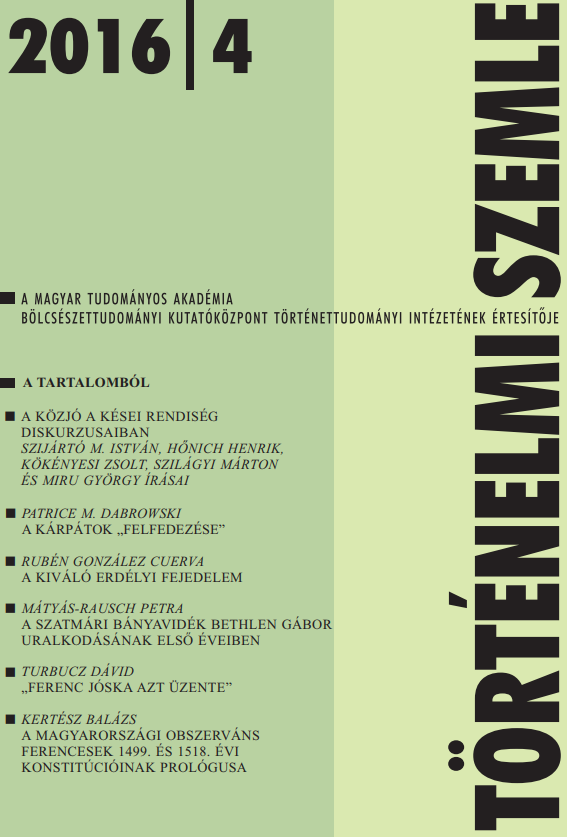„Ferenc Jóska azt üzente” - Uralkodói születés- és névnapok az I. világháború alatt
“Francis Joseph Sent a Message”. Imperial Birth- and Namedays during World War I
Author(s): Dávid TurbuczSubject(s): Customs / Folklore, Political history, Pre-WW I & WW I (1900 -1919)
Published by: Magyar Tudományos Akadémia Bölcsészettudományi Kutatóközpont Történettudományi Intézet
Keywords: Francis Joseph; World War I; Austro-Hungarian Monarchy;
Summary/Abstract: During World War I, the ruler’s birth- and namedays became part of war propaganda in the Austro-Hungarian Monarchy. These two festive days, especially the birthday, had already been important elements of the ruler’s cult prior to 1914. It was in accordance with the order obtained before the eruption of the war, but suited to the requirements of war propaganda, that the birth- and namedays of king Francis Joseph and Charles IV were celebrated between 1914 and 1918. The basic task of laudatory speeches and articles was stir up enthusiasm for the war in the beginning, and to maintain and strengthen it later. The ruler’s image was also adjusted to this requirement, being completed with references to the war. An important role in justifying participation in the war and guaranteeing victory was played by those statements which asserted that the nation unanimously supported the war, following their ruler with no hesitation. Each and every person was fighting, struggling and working for the king and nation. In this interpretation, what were at stakes were the defense of Hungarian statehood, as well as Hungarian freedom and independence, which led to the logical conclusion that the defeat of the Monarchy’s enemies under the leadership of the king was a moral obligation. Those who shaped royal propaganda connected the guarantee of a victory in war to the experience and wisdom of the ruler, and to his “extraordinary” personality and characteristics. These were consequently regarded as the key to victory alongside unity and concord. Despite their divergent political orientation, with one exception all the daily newspapers analyzed contained the same messages. The exception was the social democratic Népszava which, revealingly, paid no attention to the ruler’s birth- and namedays. In the last two years of the war, however, reports in the other papers also became somewhat shorter, and their enthusiasm also apparently decreased.
Journal: Történelmi Szemle
- Issue Year: 2016
- Issue No: 04
- Page Range: 603-614
- Page Count: 12
- Language: Hungarian

